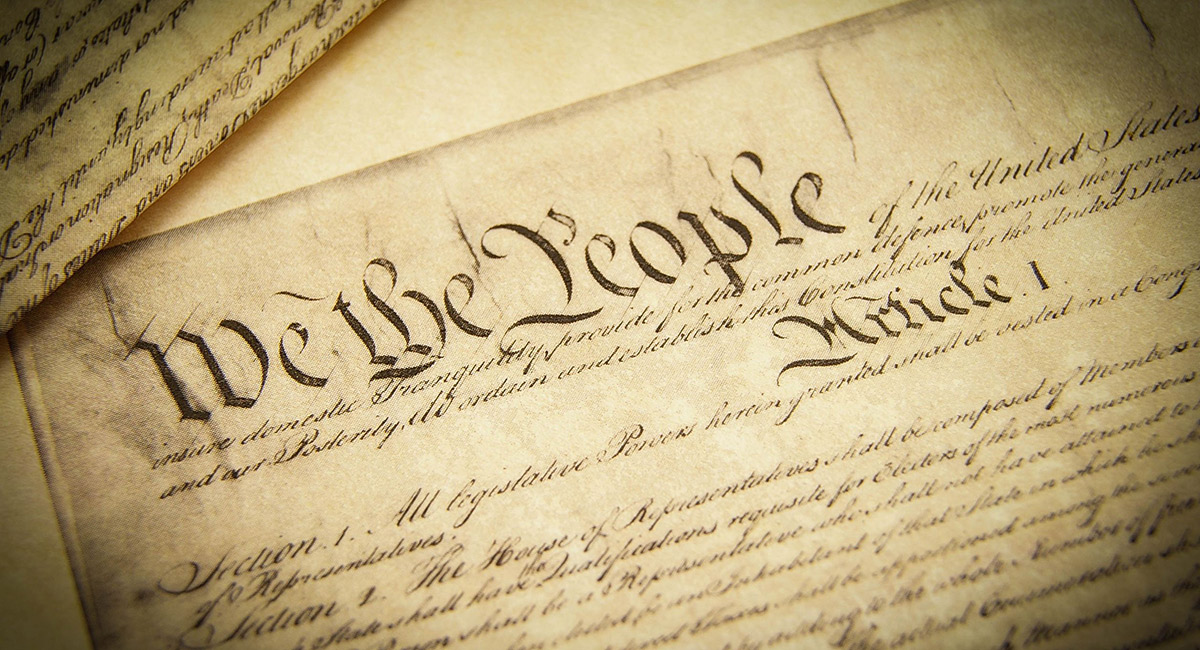Recent decades have searingly demonstrated that the president has become too powerful in the American republic, most prominently in the national security arena. However, the phenomenon of executive usurpation of Congress’s predominant role in national security began to significantly erode when William McKinley, without congressional approval, sent U.S. troops to China to help European powers put down the Boxer Rebellion in 1900.
Throughout the 20th century, presidential usurpation of Congress’s enumerated powers in national security accelerated, beginning with Woodrow Wilson’s arming of U.S. merchant ships—making them effectively combatants before the U.S. entered World War I—after Congress had declined to authorize doing so. In the lead up to World War II, long before Congress declared war on the Axis Powers after the Japanese attack on Pearl Harbor, Franklin D. Roosevelt took unilateral, congressionally unauthorized actions that traded U.S. destroyers to belligerent Britain for British military bases, sent troops to Iceland and Greenland, and effectively involved the United States in a shooting war with German submarines in the Atlantic. During the long Cold War and beyond, beginning with Harry Truman, the American presidency became so powerful vis-à-vis the Congress—that is, imperial—it had usurped the legislative branch’s constitutional role to decide on whether to initiate war.
The executive now also makes unilateral decisions on whether to sell arms to countries across the globe and declare dangerous states of emergency at home, the latter of which is not mentioned at all in the Constitution. Unfortunately, such executive usurpation over the years was enabled by Congress’s supine acquiescence.
Although one would never know it today, the Constitution gives most of the powers in national security to Congress, not the executive. The president’s only relevant powers in this sphere are appointing ambassadors, negotiating treaties with foreign nations, and being the commander-in-chief of the U.S. military on the battlefield after war is declared by Congress. The framers construed this role narrowly, similarly to the executive’s domestic function of executing congressionally passed laws. All other major powers in national security were specifically given to Congress—ratifying treaties, declaring war, raising armies, maintaining a navy, regulating the armed forces, and providing for the calling forth of the militia and its organizing, arming, and disciplining.
After the Vietnam War, Congress passed the War Powers Act of 1973, which attempted, but failed to rein in executive war-making power. When presidents didn’t just openly flout the law by defining obvious “hostilities” excessively narrowly, the legally binding parts of the act allowed the president to present Congress with the fait accompli of foreign intervention without prior congressional approval, which the framers’ constitutional concept required in cases not involving self-defense of the country. The act stipulated that if Congress failed to authorize the president’s unilateral military intervention, the executive had to terminate hostilities and withdraw U.S. forces in 60 days. If a determined Congress wanted the forces withdrawn sooner, it had to muster an unlikely two-thirds vote to override a probable presidential veto.
A new bipartisan bill, the National Security Powers Act, introduced by Senators Chris Murphy (D-Conn.), Mike Lee (R-Utah), and Bernie Sanders (I-VT) attempts to repeal the 1973 act and ameliorate some of its flaws in the new legislation. The bill specifically defines “hostilities” so that presidents cannot evade the law, cuts the period for automatic termination of interventions from 60 to 20 days to make it harder for presidents to conduct offensive wars without congressional approval, automatically cuts off funding for an intervention if no legislative sanction is given instead of requiring a two-thirds vote in both houses, and automatically sunsets congressional war authorizations after two years.
On arms exports, the bill again flips the burden, requiring the president to get congressional approval for arms sales, instead of the current legal requirement of Congress mustering a two-thirds, veto proof majority to nix an otherwise automatic executive-driven sale. Similarly, on states of emergency, the bill requires congressional approval of such emergencies and limited emergency powers within 30 days instead of the current requirement of a two-thirds majority in Congress to override a presidential declaration of emergency. Approved emergencies must be renewed every year and cannot last more than five years.
This bill is not perfect. It still allows a president to confront the Congress with fait accompli military interventions instead of requiring congressional approval in advance for all military actions, except in clear cases of self-defense of the United States, as the framers intended. The letters of marque and reprisal provision in the Constitution and the undeclared quasi-war with France early in the history of the republic seem to indicate that the framers’ original understanding was that the people’s houses of Congress would approve even limited military interventions.
Furthermore, another caution is that self-defense, as defined by the bill, includes attacks on U.S. civilians overseas and U.S. armed forces, which are currently stationed all over the world. Executives in the past have abused such provisions to run wild with military interventions with such justifications that were flimsy. The bill does require, even in those cases, later congressional notification and authorization for military action, but will Congress ever fail to grant approval in such instances, even when justifications are shaky? Finally, reining in unilateral, presidentially declared states of emergency doesn’t deal with the inconvenient fact that they are not authorized by the Constitution at all.
Nonetheless, the bill laudably attempts to tighten the strait jacket on unilateral presidential war authority, which the War Powers Act failed to do in the 1970s, as well as unilateral executive arms sales and declarations of state of emergency. It should be passed as a first step in Congress clawing back its usurped constitutional powers.

















